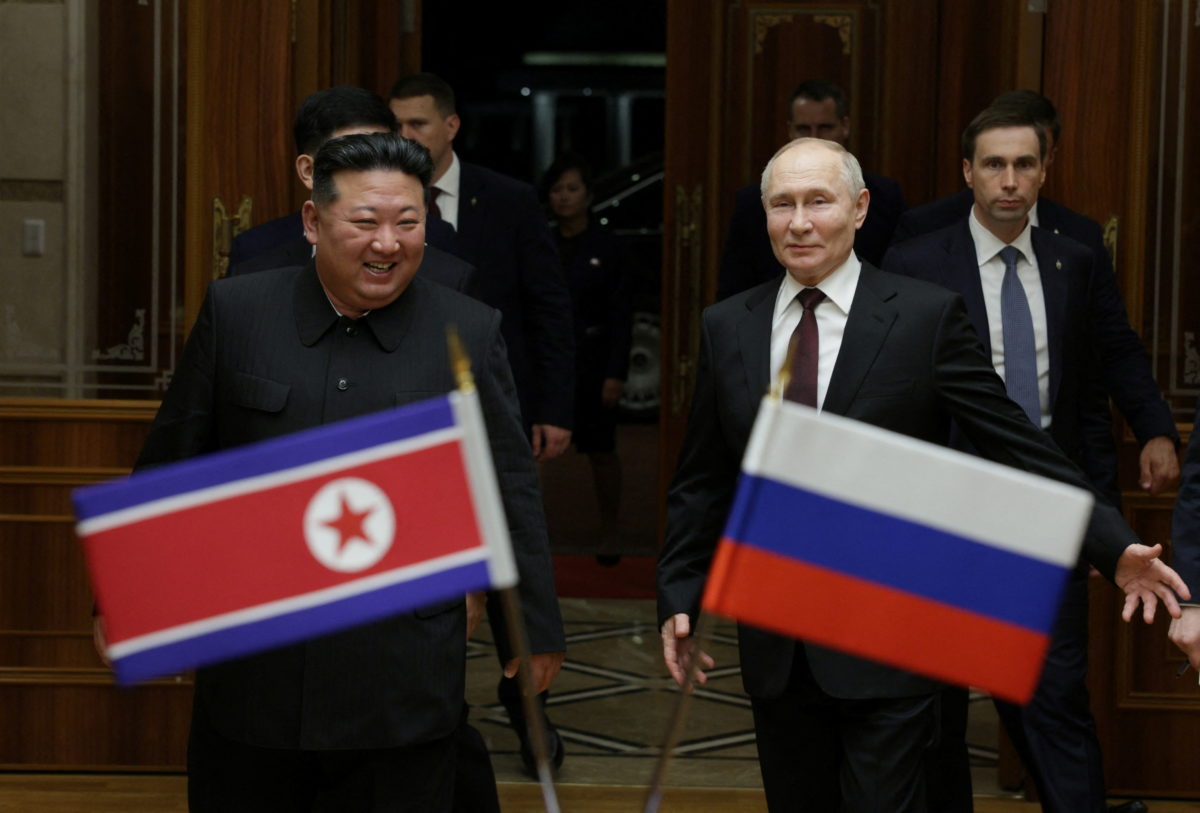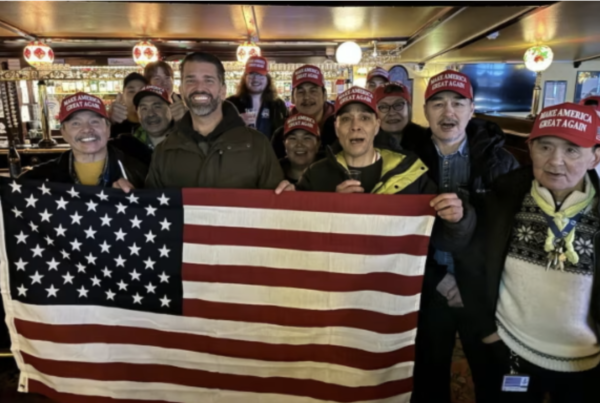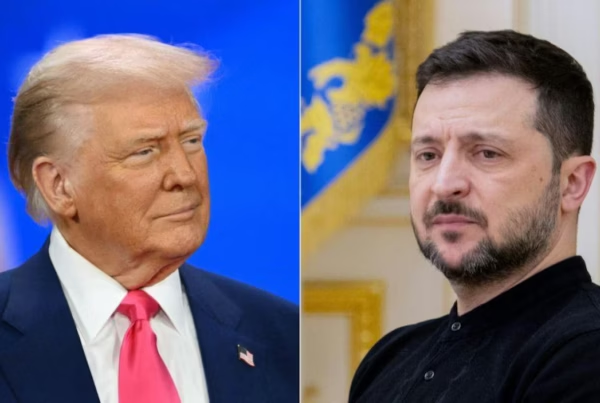Amid the ongoing war in Ukraine, a new alliance between North Korea and Russia emerges, leaving the world watching—and wondering.
Amid rising global tensions and fresh missile tests, North Korea’s foreign minister Choe Son Hui went to Moscow on October 30 to engage in ‘strategic’ talks with his Russian counterpart Sergei Lavrov. The timing of this visit couldn’t be more crucial, as Pyongyang just tested a new intercontinental ballistic missile and Washington issued a warning about North Korean military presence in Russia.
The two events are greatly tied: they highlight the new strategic partnership between the two isolated authoritarian states. This alliance was put forward with the security and defense treaty signed in June 2024 by both countries. Moscow and Pyongyang urgently needed this alliance: the former was in search of military allies, while the latter needed help against economic hardship.
This cooperation is crucial in the context of the war in Ukraine. After nearly three years, Moscow has kept its advantage on the front. However, according to the chief of staff of the Ukrainian army, there is still hope for Kyiv thanks to Western help. Ukraine’s resistance has greatly slowed down Russian advances and limited their progress. This is why Russia is seeking assistance from other countries. North Korea is not the first country to make war alliances with Putin. Recently, he has also exchanged drones with Iran. These actions aim to counterbalance Western influence with the help of the BRICS countries.
Even though Russia has more soldiers and resources than Ukraine, they are looking for even more with the help of North Korea. Recently, the Biden administration said that tens of thousands of North Korean soldiers were deployed in Europe. Washington believes part of these North Korean troops are headed to Russia’s Kursk region, which is the place of the Ukrainian offensive, where Russia had been struggling. On October 28th, NATO secretary-general Mark Rutte confirmed recent Ukrainian intelligence reports validating the information of a North Korean troops deployment in Kursk. In addition to that, North Korea is said to have provided Russia with 11,000 containers of ammunition, according to a senior NATO official. Putin has not denied the deployment of North Korean troops but has also refused to confirm it. Moscow’s UN envoy, Vassily Nebenzia, went so far as to accuse the USA of disinformation. Pyongyang has denied sending troops to Russia, while its vice foreign minister said it would be in line with global norms.
“This illegal military cooperation between Russia and North Korea is a significant security threat to the international community and could pose a serious risk to our national security,” said South Korean President Yoon Suk Yeol on October 29. The South Korean leader made it clear that this move would intensify the war in Ukraine and create tensions in the Indo-Pacific region. Similarly, the US government tried to call on China to use its influence over North Korea to prevent itfrom entering the war in Ukraine. So far, Beijing has remained silent.
Therefore, defense chiefs of both the USA and South Korea have called for North Korea to withdraw its troops from Russia. This has had a huge impact on the countries’ relations: the US government warned that North Korean soldiers would become legitimate military targets for the USA and Ukraine. In other words, the use of US-provided weapons against these forces could be unlimited. The added North Korean troops will surely put pressure on Ukraine’s army and, therefore, Western leaders. US President Joe Biden called the deployment “very dangerous.”
Regarding South Korea, there is good reason to believe that would lead to an escalation of security threats on the Korean peninsula. The threats are especially due to a technology transfer program in which North Korea will ask, in exchange for its troops, for aid in its weapon development strategies (nuclear, satellites, ICBM missiles, etc.).
North Korea already tested a new intercontinental ballistic missile on October 31. As a result, South Korea was encouraged to react by Western countries, and especially to change its policy of not sending weapons in active conflict zones like Ukraine. Seoul has not announced any official change for the moment. However, the president has signaled an openness to change that long-standing policy. The South Korean president warned that it will depend on the level of North Korean military activities.
It is still unclear whether the NATO allies will respond to the new alliance. The Guardian suggests that they could open the way for Ukraine to use Western-supplied weapons for long-range strikes on Russia. For the time being, different meetings have been scheduled since the deployment of North Korean troops. Firstly, the Defense Secretary and Secretary of State from the USA and South Korea met in Washington during the last week of October. The US Secretary of State also met the top Ukrainian officials. Furthermore, South Korean officials recently traveled to NATO headquarters. All of these meetings are likely to be a result of the North Korea-Russia issue.
Currently, western leaders’ intelligence services keep tracking North Korean troops’ progress. They have heard the North Korean alliance is facing some struggles: even though these troops are thought to be better trained and specialized, they have not faced war for 70 years. Unlike Russian soldiers, they have less combat experience. What’s more, Russian troops are raising concerns because they do not have the same knowledge concerning war. They are encountering language barriers as well as cultural ones.
Finally, the strategic alliance between North Korea and Russia, recently highlighted by the troop deployment, can change a lot for both countries, including new military, economic, diplomatic, and technology exchanges. It comes with the need to overcome many internal and external challenges, including facing possible Western reactions and measures. If we look to the future, we know that when the war in Ukraine ends, it will reduce the urgency of this North Korean-Russian agreement. It will still be interesting, however, to see how this alliance serves the broader interests of both powers and their long-term strategies. Russia wants its place in the multipolar order, while North Korea wishes to counterbalance the influences of the US and China.
Other posts that may interest you:
Discover more from The Sundial Press
Subscribe to get the latest posts sent to your email.





